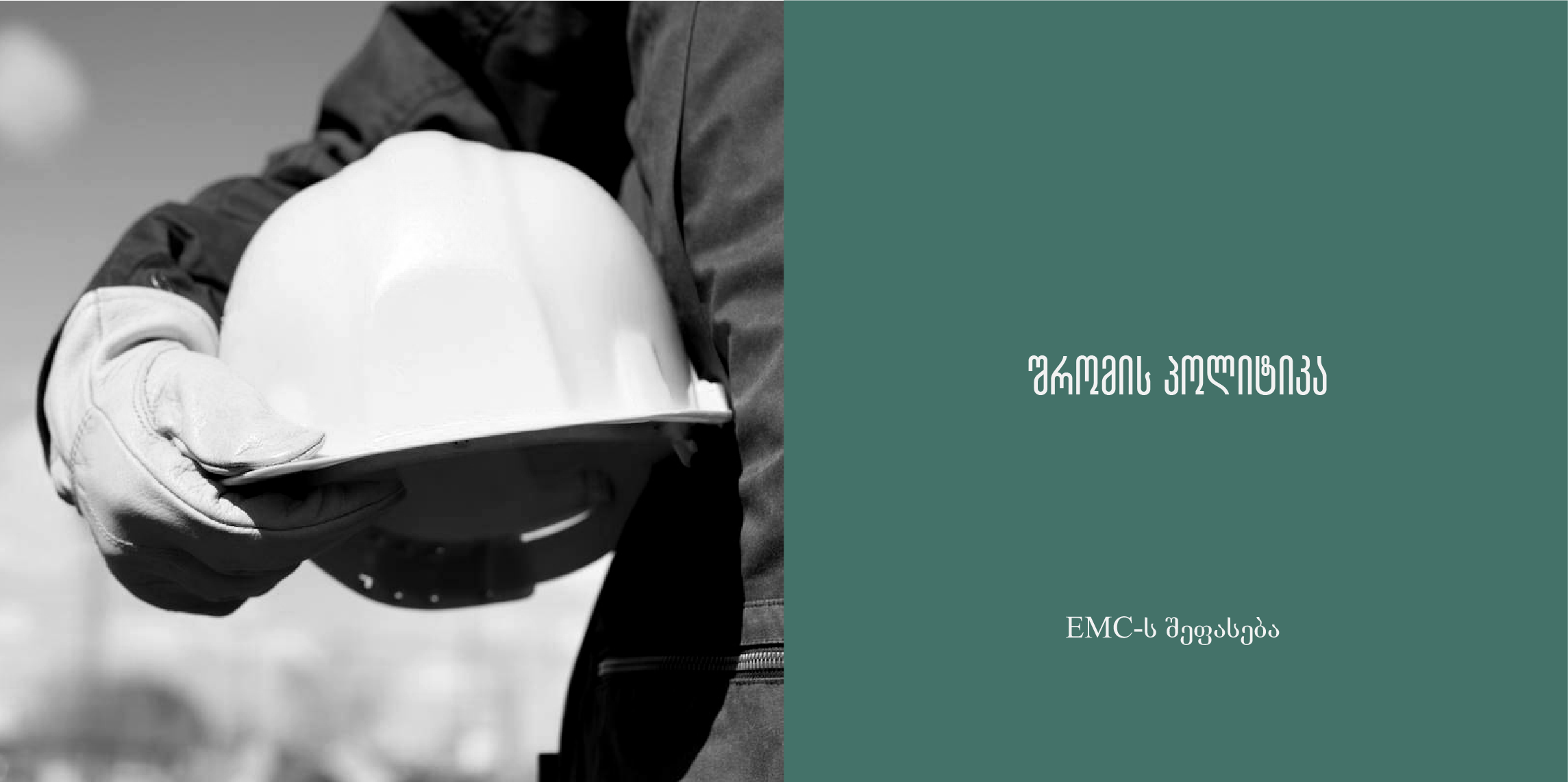საერთო ცხელი ხაზი +995 577 07 05 63


Due to the high-profile workplace deaths, the issue of labor safety was the most politicized aspect of the labor policy in 2019 as well. The (now organic) Law of Georgia on Labor Safety, passed in 2018, and the enactment of important provisions of the Law in September of this year, created a legislative basis for the labor safety policy, and especially effective labor inspection. In response to the public outrage over the deaths of the workers, a thematic inquiry group was set up in the Georgian Parliament on labor safety in May, and since August, integrated monitoring and inspection teams, including the representatives of the Tbilisi City Hall, the Labor Inspection and the Ministry of Economy, have been formed. The monitoring groups have inspected more than 200 construction sites and found violations in most cases.
However, recent data suggest that legislative changes and the activation of monitoring systems have not had a significant impact on the statistics of fatalities and injuries, resulting from industrial accidents. This is especially significant given that in Tkibuli, where, only in 2018, 12 people were killed and 9 seriously injured, the coal mining process has been suspended from July 2018, in accordance with the Prime Minister's order, until the completion of the relevant engineering and technical expertise.
Proactive Labor Inspection, institutional independence and empowerment, adequate number and qualifications of inspectors, regional representation, development of an adequate mechanism for sanctions at the level of construction in the municipalities other than Tbilisi, the foreseeability of rules and policies in relation to the criminal responsibility for breaching safety rules, and the effectiveness of investigations, a narrow understanding of the notion of safety at work (psychosocial hazards and risks at the workplace are not included) and more, remain a challenge
Still, essential problem is the fact that the labor inspection mandate does not extend to other areas of labor rights, which places workers in the service sector, who are victims of systemic exploitation, in a particularly vulnerable position.
In terms of protection of workers' rights, in addition to such important issues as the regulation of working time, the improvement of the rules against discrimination or for the maternity leave, in the framework of labor law reforms, broadening of the mandate of the Labor Inspector Service and its institutional strengthening was also planned. However, after four working meetings in October and November, political processes in the country delayed the initiation of a package of laws and therefore the possibility of guaranteeing civil labor to workers was postponed for an indefinite period.
During the past year, there have been several significant cases of worker resistance, characterized by principled strikers, effective articulation of specific requirements, and acts of solidarity. In this regard, the strike in Chiatura is notable for its solidarity by a large part of the city, which ultimately ended with the promise of meeting the demands by the Georgian Manganese employees, including a 35% increase in salaries. The battlefield was also in Tkibuli, where miners refused to leave the mines, without the increase in salaries. The negotiations were successfully completed after the involvement of the Ministry of Economy and Sustainable Development of Georgia. It soon became clear that a new company would be taking over by the Tkibuli mining enterprise and that it would take responsibility for the implementation of safety standards in the Tkibuli shafts.
However, the most prominent was the strike of the Social Service Agency social workers demanding the elimination of gaps in the social service system. The importance of social workers' resistance was that, ultimately, it served to improve the social service system, to create more equitable, effective and humane human rights and social protection mechanisms and policies. Despite the agreement reached with the Ministry, many of the problems of social workers and, consequently, of their beneficiaries - the most vulnerable groups in society - remain unresolved.
The website accessibility instruction